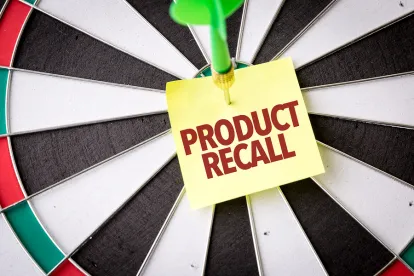Should you have to pay to see CPSC’s adopted safety standards? That is the question raised by a lawsuit filed in the Third Circuit this month, which challenges the CPSC’s adoption of mandatory safety standards for consumer products that are not available for free to the public. The American Society for Testing and Materials (“ASTM”) is a well-recognized independent organization that develops consensus-based, voluntary standards for children’s products. In 2019, ASTM updated its safety specifications for infant bath seats, which includes changes to labeling, product performance, and safety testing (ASTM F1967-19). The CPSC later promulgated an agency rule adopting the updated ASTM standard as legally binding on infant bath seat manufacturers (16 C.F.R. § 1215). On behalf of a new mother, a civil rights group filed a petition with the U.S. Court of Appeals for the Third Circuit pursuant to 15 U.S.C. § 2060 challenging the CPSC’s rule. The mother claims that she asked the CPSC for a copy of the standard and the CPSC instead directed her to buy a copy from ASTM. ASTM charges $56 for a copy of the standard—almost double the price of an infant bath seat. The petition asks the Third Circuit to vacate the rule, order the CPSC to make any binding standard freely accessible to the public whenever the CPSC proposes to promulgate a new rule, and order the CPSC to make any binding standard freely accessible to the public permanently after the CPSC adopts it in a final rule.
With warmer weather comes increased drowning risks to small children posed by swimming pools. The CPSC recently announced the availability of $2 million in pool safety grants for state and local governments to help prevent drownings and drain entrapments. The CPSC also recently announced new statistics on child drownings that underscore the need for more public awareness on this issue. Child drownings remain the leading cause of unintentional death among children ages 1 to 4 years old. The new statistics show that, on average, there were 379 pool-or-spa-related fatal child drownings per year for 2015 through 2017. Annual fatal child drownings increased gradually between 2015 and 2017, with a spike of 395 fatalities in 2017. Included in the statistics were drownings involving children under 15 years old.
Lawyers from Hunton Andrews Kurth LLP’s insurance coverage practice provide an update on a recent food contamination-related insurance dispute:
In Egg and I, LLC v. U.S. Specialty Insurance Co., No. 2:20-cv-00747 (D. Nev.), Las Vegas-based restaurant group Egg Works filed a class-action lawsuit against its insurer, U.S. Specialty, alleging that the insurer wrongly denied coverage under the company’s Restaurant Recovery Insurance Policy. Egg Works alleged that it suffered financial losses due to the Nevada governor’s mandated closures of non-essential businesses due to COVID-19, which limited restaurants to takeout and delivery service only.
The lawsuit, which seeks class certification on behalf of similarly situated policyholders that have had business interruption claims denied under restaurant recovery policies, asserts that U.S. Specialty incorrectly denied Egg Works’ claim under the policy, which affords coverage for certain “Insured Events,” including accidental or unintentional contamination or impairment of food products. In response, U.S. Specialty moved to dismiss the complaint, arguing that Egg Works’ alleged suspension of business operations due to the governor’s stay-at-home orders does not constitute an “Insured Event” because none of the losses were incurred directly and solely as the result of contamination or impairment of food products.
Many businesses adversely impacted by COVID-19-related governmental orders like those at issue in Nevada have filed insurance claims under property, event cancellation, and similar policies to recoup losses. Egg Works’ approach to recovery under a restaurant food contamination policy, however, is noteworthy and, if successful, may cause restaurants and other businesses in the food service industry to follow suit and evaluate whether losses arising from COVID-19 may be covered under other food contamination policies.
Total Recalls: 18
Hazards: Violation of Federal Standard (7); Fire/Burn/Shock (4); Tip-Over (3); Injury (1); Ingestion (1); Fall (1); High Levels of Chromium (1)








 />i
/>i

